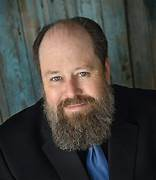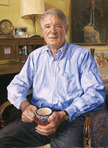Review: All Things Are Full of Gods
This book caught my attention as a philosophical, perhaps religious book with its subtitle: The mysteries of Mind and Life. It was written by David Bentley Hart, who is a philosopher, scholar of religion, writer, and cultural commentator. His books include The Experience of God: Being, Consciousness, Bliss and Roland in Moonlight. His current position is collaborative researcher at the University of Notre Dame.

David Bentley Hart
This book is not an easy read. The text brims with philosophical terms so that I found myself reading with my phone within easy reach to look up the unfamiliar terms. It is 483 pages long with 11 pages of footnotes and a 14 page index. Clearly, it is a scholarly masterpiece. And yet, one wants to keep reading to discover the revelation one can sense is coming, to achieve new insights, and to rediscover important truths. Rather than frame the book as an extended first-person lecture, the author has assigned the debate on the nature of existence to four Greek gods who have near infinite knowledge, the authority of being gods and engaging characters. They are: Psyche, the goddess of soul and life, Eros, Psyche’s husband and god of love, Hermes, the messenger of the gods and the divine intermediary between heaven and earth, and Hephaistos, the god of craftsmen and manufacturing; he is the deity of all technical virtuosity, ingenuity and skill. The dialogue takes place at the estate of Eros and Psyche, in one of its many gardens. Everything is in blossom. In that place everything always is. Psyche begins the debate by picking a rose and commenting on its beauty. She then leads the discussion of existence over the next several days. Hephaistos role, throughout the debate, is the represent the position of reductionist materialism philosophy, which takes the position that everything can be explained scientifically.Topics include mind, life, matter, brain, machine, soul and nature. Much of the discussion centers on the inability of some philosophers (current and ancient) to demonstrate that science (including nuclear physics, modern chemistry and quantum mechanics) does, in fact, answer all of the interesting questions.There are revelations about genetic science which prompt questions about how a living single cell ‘knows’ how to modify its own capability to respond better to its environment. The conclusion is that life, mind and language must be put it place by a ‘higher power’. In spite of many scientific attempts, life has never been produced in a laboratory. Likewise, there is no explanation for the existence of mind, in all its glory, including consciousness. Language owes its existence to mind.
Why isn’t there a condensed version of this book which uses everyday language to make the point that atheism is a dead end belief?
A must read!



